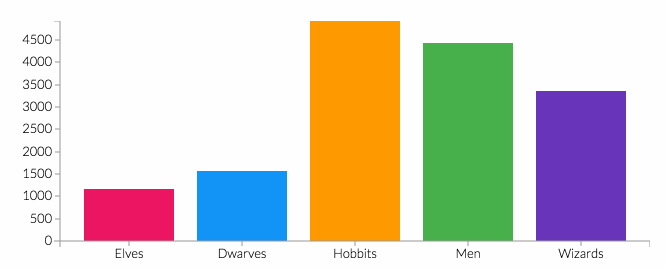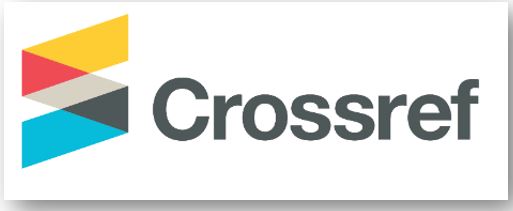Pengaruh Kepemimpinan Transformasional Terhadap Kesiapan untuk Berubah di Mediasi Motivasi Kerja dan Komitmen Organisasional pada Dinas Kependudukan dan Pencatatan Sipil di Indonesia
DOI:
https://doi.org/10.61231/mjeec.v2i2.271Keywords:
Transformational Leadership, Work Motivation, Organizational Commitment, Readiness for ChangeAbstract
This study aims to determine transformational leadership on work motivation, transformational leadership on organizational commitment, work motivation on readiness to change, organizational commitment on readiness to change, organizational commitment on work motivation, transformational leadership on readiness to change, transformational leadership through work motivation on readiness to change, transformational leadership through organizational commitment on readiness to change. The purposive random sampling method, this study uses the SEM-PLS analysis tool with a sample of 387. The results of this study are transformational leadership has a positive and significant effect on organizational commitment. Transformational leadership has a positive and significant effect on work motivation. Organizational commitment has a positive and significant effect on readiness to change. Work motivation has a positive and significant effect on readiness to change. Transformational leadership has a positive and significant effect on readiness to change. Work motivation has a positive and significant effect on organizational commitment. Transformational leadership through work motivation has a positive and significant effect on readiness to change
References
Al-Husseini, S., El Beltagi, I., & Moizer, J. (2019). Transformational leadership and innovation: The mediating role of knowledge sharing amongst higher education faculty. International Journal of Leadership in Education, 1–24. https://doi.org/10.1080/13603124.2019.1588381
Anne Scaduvo, Douglas Linsay and Chiaburu S. 2008. Leadership Influence on training effectiveness: Motivation and Outcame Expectation Process. Internationl Journal of Training and Development, Vol. 12. Issue. 3. Pp. 158 – 170.
Armenakis, Achilles A., and Stanley G. Harris, ‘Crafting a Change Message to Create Transformational Readiness’, Journal of Organizational Change Management, 15.2 (2002), 169–83 https://doi.org/10.1108/09534810210423080
Armenakis, Archiles A, Stanley G Harris, and Kevin W Mossholder, ‘Armenakis, Harris & Mossholder (1993) Creating Readiness for Organizational Change’, Human Relations, 1993, 681–703
Asbari, M., Hidayat, D., & Purwanto, A. (2021). Managing Employee Performance: From Leadership to Readiness for Change. International Journal of Social and Management Studies (IJOSMAS), 02(01), 74–85. https://ijosmas.org/index.php/ijosm as/article/view/12/12
Bernerth, Jeremy, ‘Expanding Our Understanding of the Change Message’, Human Resource Development Review, 3.1 (2004), 36–52 https://doi.org/10.1177/1534484303261230
Browning, P. (2014). Why trust the head? Key practices for transformational school leaders to build a purposeful relationship of trust. International Journal of Leadership in Education, 17(4), 388–409. https://doi.org/10.1080/13603124.2013.844275
Desianty, S. (2015). Pengaruh Gaya Kepemimpinan Terhadap Komitmen Organisasi Pada PT POS Indonesia (PERSERO) Semarang. Jurnal Studi Manajemen Organisasi, Volume 2(No. 1), Pg. 69-84.
Eby, Lillian T., Danielle M. Adams, Joyce E.A. Russell, and Stephen H. Gaby, ‘Perceptions of Organizational Readiness for Change: Factors Related to Employees’ Reactions to the Implementation of Team-Based Selling’, Human Relations, 53.3 (2000), 419–42 https://doi.org/10.1177/0018726700533006
Gilbert, S. L., & Kelloway, E. K. (2018). Leadership, recognition and well-being: A moderated mediational model. Canadian Journal of Administrative Sciences/Revue Canadienne Des Sciences De L’administration, 35(4), 523–534. https://doi.org/10.1002/cjas.1477
Hanpachern, Chutima, George A. Morgan, and Orlando V. Griego, ‘An Extension of the Theory of Margin: A Framework for Assessing Readiness for Change’, Human Resource Development Quarterly, 9.4 (1998), 339–50 https://doi.org/10.1002/hrdq.3920090405
Hasibuan, Malayu. (2009). Manajemen Sumber Daya Manusia – edisi revisi. Jakarta: PT Bumi Aksara
Henricks, M. D., Young, M., & Kehoe, E. J. (2020). Attitudes toward Change and Transformational Leadership: A Longitudinal Study. Journal of Change Management, 20(3), 202219. https://doi.org/10.1080/14697017. 2020.1758529
_______________ (2016). Manajemen Sumber Daya Manusia. Jakarta: PT Bumi Aksara
Hidayati, Siti Noor, ‘Pengaruh Kepemimpinan Transformasional Dan Transaksional Terhadap Kinerja Karyawan Dengan Komitmen Organisasi Sebagai “Intervening Variable”’, Jurnal Maksipreneur: Manajemen, Koperasi, Dan Entrepreneurship, 3.2 (2014), 117 https://doi.org/10.30588/jmp.v3i2.158
Holt, Daniel T., Achilles A. Armenakis, Hubert S. Feild, and Stanley G. Harris, ‘Readiness for Organizational Change: The Systematic Development of a Scale’, Journal of Applied Behavioral Science, 43.2 (2007), 232–55 https://doi.org/10.1177/0021886306295295
Holt, D. T., Armenakis, A. A., Feild, H. S., & Harris, S. G. (2007). Readiness for organizational change: The systematic development of a scale. Journal of Applied Behavioral Science, 43(2), 232–255. https://doi.org/10.1177/0021886306295295
John E. Barbuto, Jr. and Gregory T. Gifford. 2012. Motivation and Leader-Member Exchange: Evidence Counter to Similarity Attraction Theory. Internationl Journal of Leadership Studies. Vo. 7. Iss. 1. Pp. 18-28.
Jung, D. I., Chow, C., & Wu, A. (2003). The role of transformational leadership in enhancing organizational innovation: Hypotheses and some preliminary findings. The Leadership Quarterly, 14(4–5), 525–544. https://doi.org/doi:10.1016/S1048-9843(03)00050-X
Kezar, A., & Eckel, P. (2008). Advancing diversity agendas on campus: Examining transactional and transformational presidential leadership styles. International Journal of Leadership in Education, 11(4), 379–405. https://doi.org/10.1080/13603120802317891
Lanaj, K., Johnson, R. E., & Lee, S. M. (2016). Benefits of transformational behaviors for leaders: A daily investigation of leader behaviors and need fulfillment. Journal of Applied Psychology, 101 (2), 237. https://doi.org/10.1037/apl0000052
Lia, R. dan Haryoko, F. F. (2016). Peningkatan motivasi kerja dan kesiapan untuk berubah melalui pemberian workshop powers inside enjoy outside pada level manajerial di PT X. https://lib.ui.ac.id/detail.jsp?id=20433040&lokasi=lokal
Luthans, F. (2011). Organizational Behavior (Twelfth Edition ed.). New York: McGraw-Hill.
Mahessa, N. F., & NRH, F. (2016). Gaya Kepemimpinan Melayani dan Kesiapan untuk Berubah pada Karyawan BPJS Ketenagakerjaan. Jurnal Empati, 5(1), 113–116.
Madsen, Susan R., Cameron R. Jone, and Duane Miller, ‘Influential Factors in Individual Readiness for Change’, Journal of Business Management, 12.2 (2006), 93–110 http://search.proquest.com/docview/211508168?accountid=48465
Madsen, Susan R., Cameron R. Jone, and Duane Miller, ‘Influential Factors in Individual Readiness for Change’, Journal of Business Management, 12.2 (2006), 93–110 http://search.proquest.com/docview/211508168?accountid=48465
Madsen, Susan R., Cameron R. Jone, and Duane Miller, ‘Influential Factors in Individual Readiness for Change’, Journal of Business Management, 12.2 (2006),93 http://search.proquest.com/docview/211508168?accountid=48465
Manalo, R. A., Castro, B. D., & Uy, C. (2020). The Mediating Role of Job Satisfaction on the Effect of Motivation to Organizational Commitment and Work Engagement of Private Secondary High School Teachers in MetroManila. Review of Integrative Business and Economics Research, 9(1), 133-159.
Novitasari, D., Goestjahjanti, F. S., & Asbari, M. (2020). The Role of Readiness to Change between Transformational Leadership and Performance: Evidence from a Hospital during Covid-19 Pandemic. APMBA (Asia Pacific Management and Business Application), 9(1), 37–56. https://doi.org/10.21776/ub.apmba. 2020.009.01.4
Phungsoonthorn, T., & Charoensukmongkol, P. (2019). Antecedents and outcomes associated with a sense of place toward the organization of Myanmar migrant workers in Thailand. Equality, Diversity and Inclusion, 39(2), 195–218. https://doi.org/https://doi.org/10.1108/EDI- 06-2019-0177
PRATAMA, R. H., ERLINA, R., & JIMAD, H. (2021). Effect Of Quality Of Work Life And Work Stress On Employee Performance Through Organizational Commitments As Intervening Variables At The Branch Offices Of PT. Bank West Java And Banten. Tbk In Sumatera. International Journal of Environmental, Sustainability, and Social Science, 2(2), 172–180. https://doi.org/10.38142/ijesss.v2i2.244
Peng, J., Li, M., Wang, Z., & Lin, Y. (2021). Transformational Leadership and Employees’ Reactions to Organizational Change: Evidence From a Meta Analysis. Journal of Applied Behavioral Science, 57(3), 369397. https://doi.org/10.1177/002188632 0920366
Rafferty, A. E., Jimmieson, N. L., & Armenakis, A. A. (2013). Change Readiness: A Multilevel Review. Journal of Management, https://doi.org/https://doi.org/10.1177/0149206312457417
Reza Hardian Pratama, Mohammad Athian Manan. (2024). The Influence Of The Online Service Quality Program On The Community Satisfaction. The Influence Of The Online Service Quality Program On The Community Satisfaction Index Of The Registration And Civil Population Office Of Bandar Lampung City Https://Doi.Org/10.37250/Newkiki.V4i1.250, 8, 1.
Robbins, P. Stephen. (2018). Prinsip-Prinsip Perilaku Organisasi. Edisi Kelima. Diterjemahkan oleh: Halida, S.E dan Dewi Sartika, S.S. Erlangga, Jakarta. Robbins, P. Stephen. (2006). Perilaku Organisasi. Edisi Sepuluh. Diterjemahkan oleh: Drs. Benyamin Molan. Erlangga, Jakarta
Susyanto, H. Kepemimpinan, (2019). Pengaruh Keterlibatan Karyawan dan Kepuasan Kerja terhadap Kesiapan untuk Berubah dalam Menghadapi Perubahan Organisasi. Jurnal Ekonomi, Bisnis, Dan Akuntansi (JEBA), 21(1).
Yani, Elizabeth Imelda, and Soehardi, ‘Pengaruh Transformational Leadership Dan Employee Engagement Terhadap Readiness for Change Pada Kelembagaan Persandian Di Lingkungan Pemerintah Daerah’, Jurnal Ilmiah Manajemen Ubhara, 4.3 (2017), 90–122
Xiaomeng Zhang and Kathryn M. Bartol. 2010. Linking Empowering Leadership and Employee Creativity: The Influence of Psychological Empowerment, Intrinsic Motivation and Creativity Process Engagrmrnt. Academy of Management Journal. Vol. 53. No. 1. Pp. 107-128.
Yeap, S. B., Abdullah, A. G. K., & Thien, L. M. (2021). Lecturers’ commitment to entrepreneurship: transformational teaching do leadership, mindfulness and readiness for change matter? Journal of Applied Research in Higher Education, 13(1), 164–179. https://doi.org/10.1108/JARHE12-2019-0311
Yukl, G. (2013). Leadership in Organizations 8th Edition. United States: Pearson Education.
Weiner, B. J. (2009). A theory of organizational readiness for change. Implementation Science, 4(1), 1–9. https://doi.org/https://doi.org/10.1186/1748-5908-4-67
Wiyono, B. B. (2018). The effect of self-evaluation on the principals’ transformational leadership, teachers’ work motivation, teamwork effectiveness, and school improvement. International Journal of Leadership in Education, 21(6), 705–725. https://doi.org/10.1080/13603124.2017. 1318960
Wulandari, C.; Purwanto, T.; dan Ariprabowo, T. (2022). Pengaruh Motivasi Kerja dan Budaya Organisasi terhadap Kesiapan Karyawan untuk Berubah di PT. Saraswanti Utama. Journal of Sustainability Business Research, 3(2), 1–9.
Zhu, W., Avolio, B. J., & Walumbwa, F. O. (2009). Moderating role of follower characteristics with transformational leadership and follower work engagement. Group & Organization Management, 34(5), 590–619. https://doi.org/10.1177/1059601108331242
Downloads
Published
Issue
Section
License
Copyright (c) 2024 Reza Hardian Pratama, Ayyumi khusnul Khotimah

This work is licensed under a Creative Commons Attribution 4.0 International License.
You are free to:
- Share — copy and redistribute the material in any medium or format for any purpose, even commercially.
- Adapt — remix, transform, and build upon the material for any purpose, even commercially.
- The licensor cannot revoke these freedoms as long as you follow the license terms.
Under the following terms:
- Attribution — You must give appropriate credit , provide a link to the license, and indicate if changes were made . You may do so in any reasonable manner, but not in any way that suggests the licensor endorses you or your use.
- No additional restrictions — You may not apply legal terms or technological measures that legally restrict others from doing anything the license permits.
Notices:
You do not have to comply with the license for elements of the material in the public domain or where your use is permitted by an applicable exception or limitation .
No warranties are given. The license may not give you all of the permissions necessary for your intended use. For example, other rights such as publicity, privacy, or moral rights may limit how you use the material.














